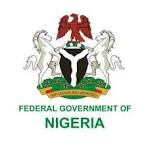The Federal Government of Nigeria has outlined comprehensive strategies to address the country’s long-standing housing challenges, aiming to bridge the significant gap between housing demand and supply. These initiatives are part of broader efforts to stimulate economic growth, improve living conditions, and enhance the overall quality of life for Nigerians.
Key Initiatives
- Budget Allocation for Housing
- The 2025 budget allocates N32 billion for special housing initiatives, focusing on four key programs: the Federal Integrated Staff Housing Programme, the Family Home Funds Housing Financing Project, the Renewed Hope Agenda Housing Scheme, and the National Housing Programme.
- Notably, N15.47 billion is dedicated to developing affordable student housing, addressing the acute shortage in higher education institutions.
- Budget Increase for Housing Ministry
- The Federal Ministry of Housing and Urban Development has received an additional N50 billion in its 2025 budget, reversing an earlier proposed cut. This increase is intended to boost the housing sector, create jobs, and settle outstanding financial obligations.
- Renewed Hope Social Housing Programme
- This ambitious program aims to construct 100 housing units in each of Nigeria’s 774 local government areas, totaling 77,400 homes within a year. It targets low-income earners, the unemployed, and vulnerable groups, ensuring access to decent housing for all.
- The program includes essential facilities like clinics, schools, and shopping malls, enhancing community living standards.
- Real Estate Growth Targets
- The government projects the real estate sector to reach a market volume of N2.25 trillion by 2025, despite challenges such as inflation and exchange rate volatility. Strategic partnerships and innovative financing models are being explored to achieve this goal.
Impact and Challenges
- Economic Contribution: The real estate sector contributes significantly to Nigeria’s GDP, with potential for further growth through large-scale housing developments and public-private partnerships.
- Housing Deficit: Nigeria faces a massive housing deficit of over 28 million units, driven by rapid urbanization and population growth. Addressing this gap remains a major challenge.
- Affordability Measures: Initiatives like recapitalizing the Federal Mortgage Bank and exploring Real Estate Investment Funds aim to make housing more affordable by offering lower mortgage interest rates.
Overall, the Federal Government’s plans for the housing sector reflect a commitment to addressing long-standing challenges and fostering economic growth through strategic investments and partnerships.

